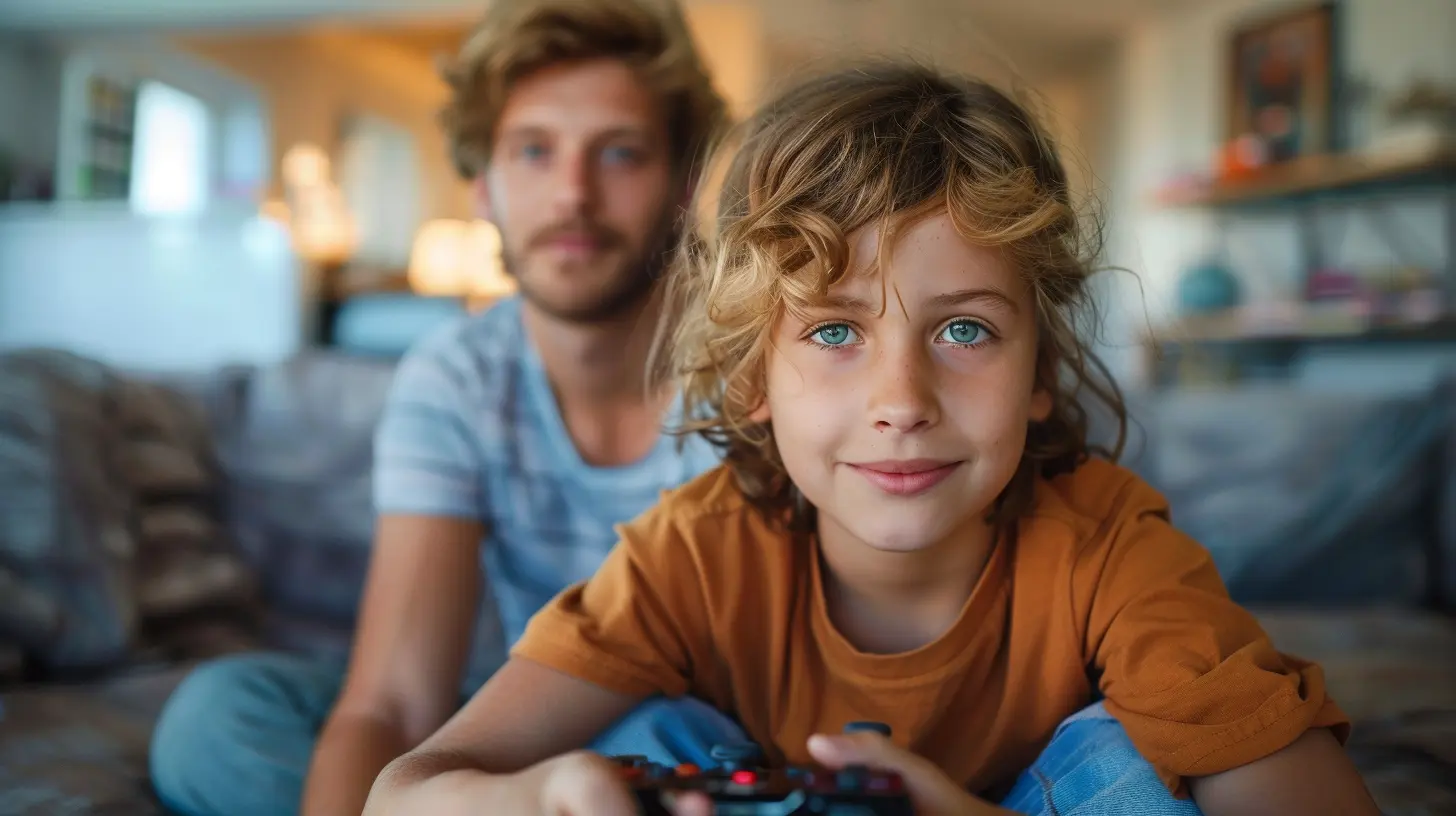Why Communication is Key in Managing Gaming Habits
13 September 2025
Let’s be honest—we all love gaming. That thrill of finally nailing a headshot, completing a tough raid, or just vibing in your favorite open world for hours? Pure bliss. But sometimes, our love for gaming can spiral into something bigger—when just one more game turns into five, or when a quick session ends at 3 AM. Sound familiar?
The truth is, gaming isn’t the enemy here. The issue often lies in how we manage it. And here’s where the real hero steps in: communication. Yep, not flashy, not action-packed, but absolutely game-changing.
In this article, we’re diving into why communication is key in managing gaming habits, whether it's with yourself, your friends, your partner, or even your parents. So grab a snack, settle in, and let's have a chat. (See what I did there?)
The Gaming Life: A Double-Edged Sword
Before we talk about fixing things, let’s admit something—games are awesome. They're immersive, social, competitive, and honestly, sometimes a great escape. But that same addictive charm can be a slippery slope.When Gaming Becomes Too Much
Gaming becomes a problem when:- You skip meals or sleep to play.
- Friends and family feel ignored.
- You snap at people who question your game time.
- Responsibilities (school, work, etc.) start falling off the radar.
Sound dramatic? Maybe. But for many, it’s real. And the worst part? It often sneaks up on you. One day you're just playing for fun. The next, it’s your entire world.
So, how can we keep gaming fun without letting it take over? That’s where talking comes into play.
Communication With Yourself: The First Level
Let’s start with the most obvious (and most ignored) type of communication—self-talk. If you're not honest with yourself, it’s really hard to stay balanced.Ask Yourself The Tough Questions
Try checking in with yourself:- "Am I playing to relax, or to avoid something?"
- "Did I do everything I needed to do today?"
- "Am I ignoring people or responsibilities?"
These simple questions can reveal a lot. They work like a mirror—showing you what you might be glossing over.
You wouldn’t ignore upgrade alerts in a game, right? So why ignore them in real life?
Setting Boundaries Like You Set Loadouts
You build your character with balanced stats, right? Same goes for life. Set clear limits on playtime, maybe even use timers or parental control tools (yes, even for adults—it’s not shameful, it’s smart).Communicating with yourself means being honest, being aware, and being willing to make small adjustments. You’re the main character of your story. Treat yourself like it.
Communication With Friends: The Party System
Gaming is often social—MMOs, co-ops, party chat nonsense... all part of the fun. But what happens when your gaming buddies don’t realize you're trying to dial it down?Say What You Mean, Don’t Just Rage-Quit
If you're trying to cut back but your squad keeps pulling all-nighters, talk to them. A simple “Hey, I’m trying to manage my play time a bit better” can go a long way. You’d be surprised how supportive people can be—especially fellow gamers.Play Together, Respect Together
Gaming friends become real friends when they support your growth—both in-game and IRL. And if they don't? Maybe it’s time to change lobbies.
Communication With Family: The Parental Power-Ups
Whether you’re a teen trying to justify your hours or a parent struggling to understand your kid’s love for gaming, conversations at home are GOLD.For Gamers: Help Them Understand
Your parents might think you're just wasting time. So, educate them! Show them your in-game achievements, explain the social side of playing, or even invite them to play a level. Bridging the gap can break down a lot of misunderstandings.But also be honest about your habits. If they’re concerned, listen. They’re not trying to ruin your fun—they just want to make sure you’re okay.
For Parents: Talk, Don’t Lecture
If you're a parent reading this, here's a cheat code: Start with curiosity, not criticism.Ask:
- “What do you enjoy most about this game?”
- “Can you show me how it works?”
- “How do you balance this with school/work?”
These open-ended questions build trust. Instead of turning gaming into a battlefield, make it a conversation zone.
Romantic Relationships and Roommates: The Real Co-Op Mode
When you live with someone—partner, roommate, or spouse—your gaming habits affect them too. Whether it’s noise, shared schedules, or lack of quality time, poor communication can turn your console into a wedge.Set Expectations, Not Traps
Rather than waiting for fights or passive-aggressive sighs, talk ahead of time. Say stuff like:- “I usually play from 8-10, does that work for you?”
- “Let’s plan something together tonight—I'll game later.”
- “This weekend’s new patch is dropping… can I go hard on gaming then?”
It’s all about respecting each other’s time. Like any co-op game, communication is what wins the mission.
Online Communities: Strength in Numbers
Gaming has one of the most active online cultures out there—from Reddit to Discord to Twitch streams. These communities can be incredibly supportive, or incredibly pressure-filled.Don’t Get Sucked Into The “Grind Culture”
There’s this subtle flex in gaming communities: “I’ve played 100 hours this week!” It's impressive, but also… exhausting. You don’t need to match anyone’s grind.Talk about balance with others. Share your boundaries. You’ll either inspire someone or find others trying to do the same.
Tackling Gaming Addiction: When It Gets Serious
Let’s not sugarcoat it—game addiction is real. And while it’s not as widely talked about as other addictions, it can cause serious damage to mental health, relationships, and lifestyle.Talk To A Pro
If you can’t stop despite trying, and it’s messing with your life big time—talk to a therapist. There’s no shame in needing help. In fact, it’s a power move.And therapists who understand gaming? They're out there. More than you think.
Tips for Healthier Gaming Conversations
Okay, so we’ve hyped up communication. But how do you actually make these talks work? Here are some quick tips:1. Stay Chill
No one likes being attacked. Speak calmly, honestly, and with empathy.2. Listen More Than You Talk
Communication isn’t just speaking—it’s hearing the other side without interrupting.3. Use “I” Statements
Say “I feel like I’ve been gaming too much lately” instead of “You’re always nagging me about games.”4. Set Joint Goals
Work together to set goals—like “no screens during dinner” or “game-free Sundays.” Team goals = team wins.5. Check In Regularly
Don’t make this a one-time talk. Keep checking in monthly, weekly—whatever works. Life shifts, and so do routines.Final Thoughts: Communication Is The Ultimate Cheat Code
Let’s wrap it up. Gaming is awesome. It can be inspiring, educational, and downright joyful. But like anything, too much of a good thing… isn’t so good.The secret sauce to keeping your gaming habits in check? Honest, open, ongoing communication. With yourself. With your friends. With your family. With your partners. With your community.
It's not about playing less—it's about playing smarter.
So next time you pick up that controller, also pick up a conversation. You never know how much difference it could make.
all images in this post were generated using AI tools
Category:
Parental Guide To GamesAuthor:

Tayla Warner
Discussion
rate this article
1 comments
Violet Harper
Clear communication transforms gaming habits—don’t underestimate its power!
September 14, 2025 at 4:31 PM

Tayla Warner
Absolutely! Clear communication fosters understanding and collaboration, leading to healthier gaming habits.


